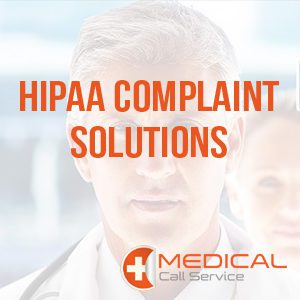
Emergency Medical Dispatching: How Answering Services Handle Urgent Calls
In the fast-paced world of healthcare, every second counts when responding to emergency situations. As someone who has worked in the medical call service industry for two decades, I have seen firsthand how crucial it is for healthcare providers to have a reliable emergency dispatching system in place. When a patient calls in distress, the last thing they need is to be placed on hold or left without assistance.
As a Princeton graduate with a background in human resource management and psychology, I understand the importance of clear communication and rapid response in high-pressure situations. Through Medical Call Service, I have helped medical practices, hospitals, and emergency services implement effective answering solutions that ensure no urgent call goes unanswered.
Emergency medical dispatching is a critical function of medical answering services, and in this article, I will explain how it works, why it’s essential, and how the right answering service can help save lives.
What is Emergency Medical Dispatching?
Emergency medical dispatching is the process of handling urgent calls from patients, caregivers, or bystanders who need immediate medical assistance. Medical answering services that specialize in emergency dispatching work as an extension of healthcare providers, ensuring that calls are quickly assessed and directed to the right medical personnel.
Unlike standard call answering services, emergency dispatching requires trained professionals who can:
- Recognize life-threatening situations
- Gather critical information quickly
- Prioritize calls based on urgency
- Connect patients with first responders, doctors, or nurses without delay
The goal is to streamline communication between callers and medical professionals to ensure that emergency situations are handled efficiently and effectively.

How Answering Services Manage Urgent Calls
Handling emergency medical calls requires a structured process to ensure no time is wasted. A well-trained medical answering service follows a specific protocol to triage calls, escalate emergencies, and document every detail accurately.
Call Triage and Initial Response
When a medical answering service receives an urgent call, the first step is to assess the nature of the emergency. Trained dispatchers follow a triage system to determine the severity of the situation. This involves:
- Asking key questions to understand the symptoms and urgency of the case
- Identifying whether the caller needs immediate paramedic intervention
- Determining if the call should be transferred to an on-call physician, nurse, or 911
By quickly assessing the situation, answering services can ensure that medical providers receive the most accurate and relevant information when responding to an emergency.
Direct Connection to Medical Professionals
One of the most valuable features of a medical answering service is its ability to directly connect patients to healthcare providers. In emergency cases, call handlers can:
- Transfer the call to an on-call doctor or nurse for immediate medical guidance
- Dispatch paramedics or first responders if needed
- Provide pre-arrival instructions to help stabilize the patient before help arrives
This seamless communication ensures that patients receive the right care as quickly as possible.
HIPAA-Compliant Call Handling
Patient confidentiality is a top priority in emergency medical dispatching. Answering services must adhere to strict HIPAA regulations to ensure that all patient information remains secure and confidential. This includes:
- Secure call recording and documentation
- Encrypted message transmission to healthcare providers
- Controlled access to patient records and emergency response details
Ensuring compliance with HIPAA standards not only protects patient privacy but also helps medical providers maintain trust and professionalism in their emergency response systems.

Managing After-Hours and Overflow Calls
Medical emergencies don’t follow a schedule. Whether it’s after-hours, weekends, or during peak call times, an emergency answering service ensures that calls are never missed.
For healthcare providers, this means:
- Reduced burden on in-house staff
- Continuous support for patients in need
- Faster response times in critical situations
By outsourcing emergency medical dispatching, healthcare facilities can provide uninterrupted access to urgent care without overwhelming their internal teams.
Why Emergency Medical Answering Services are Essential
For many medical practices and hospitals, managing emergency calls in-house can be overwhelming. A dedicated answering service offers multiple advantages that enhance patient care and operational efficiency.
Faster Emergency Response Times
The ability to quickly connect patients with the right medical professional can mean the difference between life and death. An answering service that specializes in emergency dispatching ensures that calls are answered immediately and routed to the appropriate responder without delay.
Reduced Workload for Medical Staff
Doctors and nurses are often overwhelmed with patient care responsibilities. By outsourcing emergency call handling, medical professionals can focus on treating patients rather than managing phone lines. This leads to improved efficiency and reduced stress for healthcare providers.
Improved Patient Trust and Satisfaction
Patients expect prompt responses when they reach out for emergency assistance. A reliable answering service reassures patients that they will receive immediate attention, which strengthens trust and improves overall satisfaction with healthcare services.
Cost-Effective Solution for Medical Providers
Hiring and training in-house staff to handle emergency calls around the clock can be costly. A medical answering service provides an affordable alternative, offering 24/7 support without the need for additional staffing expenses.

Choosing the Right Emergency Medical Answering Service
Not all answering services are equipped to handle medical emergencies. When selecting a provider, healthcare facilities should look for:
- Experience with emergency medical dispatching to ensure staff is properly trained
- HIPAA compliance to protect patient confidentiality
- 24/7 availability to guarantee continuous emergency support
- Integration with healthcare systems to streamline communication between answering services and medical teams
By choosing a service that meets these criteria, healthcare providers can ensure they offer the highest level of emergency response to their patients.
Emergency medical dispatching is a critical component of patient care, ensuring that urgent calls are handled quickly and efficiently. A well-trained medical answering service plays a vital role in triaging emergencies, connecting patients to healthcare professionals, and ensuring that no call for help goes unanswered. For healthcare providers looking to enhance patient care, reduce staff burden, and improve emergency response times, investing in a professional medical answering service is a smart decision.
About the Author
Kieth Chambers is a Princeton University graduate with a bachelor’s degree in human resource management and psychology. As a writer and editor for Medical Call Service and the owner of a successful medical answering service company in California for 20 years, Kieth specializes in emergency call handling, healthcare communication solutions, and patient support services.

Leave a Reply